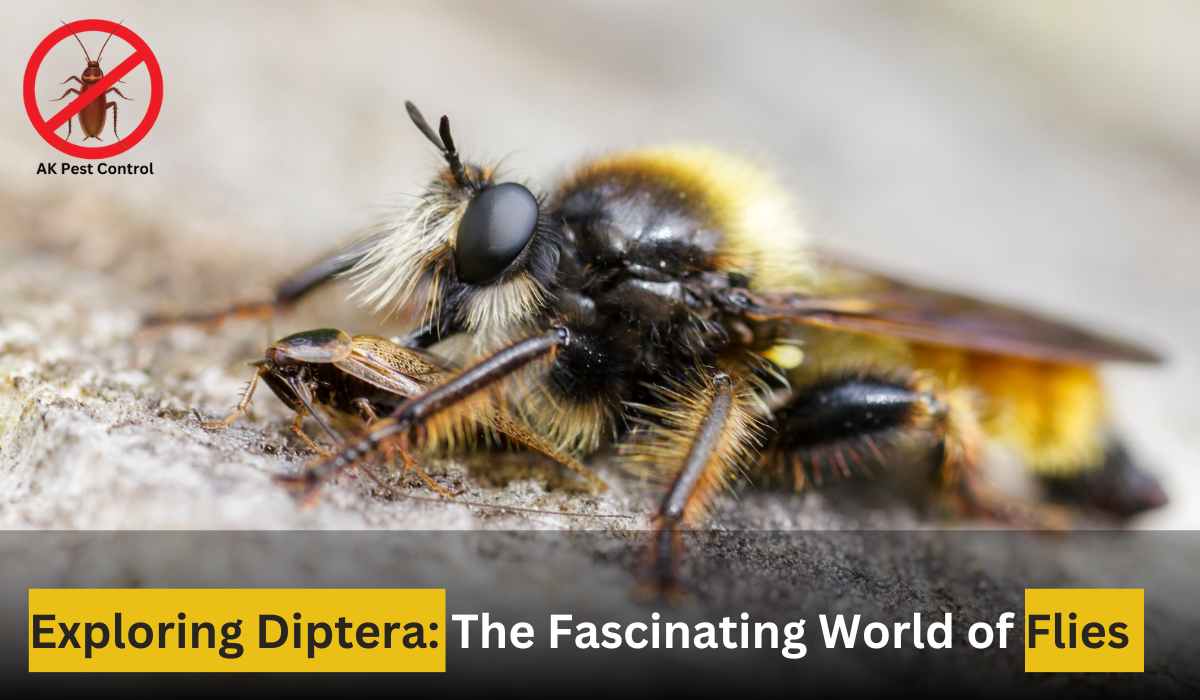Flies, scientifically known as Diptera, are a diverse group of insects found worldwide. While they are often considered pests, these tiny creatures have a unique place in the ecosystem. In this article, we will delve into the world of Diptera, their characteristics, and effective methods to control and eliminate them.
Contents
- 1 What is Diptera?
- 2 The Color of Diptera
- 3 Understanding Diptera’s Body Shape
- 4 The Life Span of Diptera
- 5 Effective Methods to Kill Flies
- 6 Vacuuming as a Fly Control Method
- 7 Fly Spraying – A Viable Solution
- 8 Dusting: Another Option to Eliminate Flies
- 9 DIY Fly Traps
- 10 Preventing Fly Infestations
- 11 Conclusion
- 12 FAQs
What is Diptera?
Diptera, commonly known as flies, encompass a vast variety of species. From compact gnats to gangly houseflies, their body shape can vary significantly. These insects are characterized by their two-winged structure, which is a defining feature of the order Diptera.
The Color of Diptera
Flies come in various shades, but the most common colors range from ash gray to blue-green. The coloration often depends on the type of fly and its environment. These colors make them distinctive and easily recognizable.
Understanding Diptera’s Body Shape
The body shape of Diptera can vary from species to species. While some flies have compact, almost inconspicuous bodies, others have more elongated and gangly shapes. These unique shapes are adaptations that help them in their respective habitats.
The Life Span of Diptera
The life span of a fly is relatively short, typically lasting between 15 to 30 days. During this time, they undergo significant developmental stages from eggs to larvae and, finally, to adult flies. Understanding their life cycle is crucial in controlling fly populations.
Effective Methods to Kill Flies
Controlling fly populations is essential for maintaining hygiene and reducing the risk of disease transmission. Here are some effective methods to kill flies:
Vacuuming as a Fly Control Method
Vacuuming is a practical way to remove flies from your living space. Use a handheld vacuum or a standard vacuum cleaner with a hose attachment to suck up flies. This method is particularly useful when you need a quick solution to eliminate flies indoors.
Fly Spraying – A Viable Solution
Fly sprays and insecticides are readily available in the market. They can be applied directly to the flies or sprayed in the areas where flies are most common. These products are formulated to effectively kill flies and keep them at bay.
Dusting: Another Option to Eliminate Flies
Dusting with fly repellent powders is another method to control fly infestations. These powders are applied in areas where flies congregate, such as garbage bins or outdoor eating areas. The powder adheres to the flies and ultimately leads to their demise.
DIY Fly Traps
You can also create DIY fly traps at home using common household items like vinegar or sugary substances. These traps lure flies in and prevent them from escaping, reducing their numbers.
Preventing Fly Infestations
Preventing fly infestations is just as crucial as eliminating them. Maintaining cleanliness, sealing garbage cans, and keeping food covered are important measures to deter flies from invading your space.
Conclusion
In conclusion, Diptera, or flies, are a diverse group of insects with intriguing characteristics. Understanding their life cycle, body shapes, and coloration can aid in effective fly control. By employing methods like vacuuming, spraying, and dusting, you can keep your living spaces fly-free. Additionally, prevention plays a key role in maintaining a fly-free environment.
FAQs
Are all flies harmful?
Flies can carry diseases and be a nuisance, but not all are harmful. Many species play vital roles in the ecosystem.
What’s the best time to control flies?
Controlling flies is best done in the warmer months when they are most active.
Do fly traps work effectively?
Yes, fly traps can be quite effective, especially when placed in strategic locations.
Can I use natural remedies to control flies?
Natural remedies like essential oils and vinegar can help deter flies, but may not be as effective as chemical methods.

